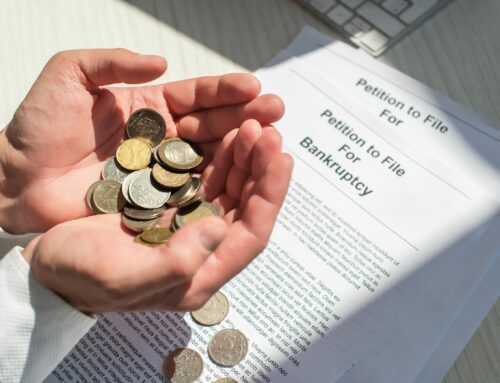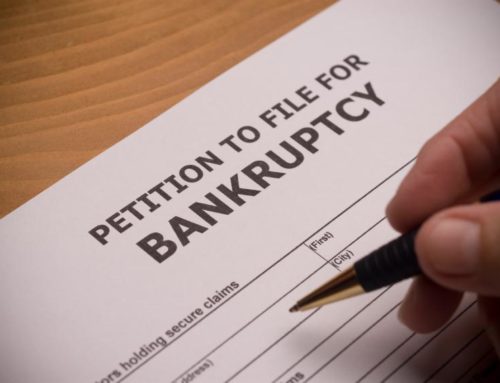If you are searching for debt relief, you should consider looking into the different bankruptcy chapters provided under the U.S. bankruptcy code. Each bankruptcy chapter suits particular individuals. As such, finding the right bankruptcy type for your financial condition will increase your chances of resolving your debt issues.
Below you will find the list of the six bankruptcy types you can consider. Among the list, three have the highest number of bankruptcy applications filed: chapters 7, 11, and 13.
- Chapter 7 (personal bankruptcy, straight or liquidation bankruptcy)
- Chapter 9 (municipality/city debt reorganization)
- Chapter 11 (reorganization bankruptcy)
- Chapter 12 (debt reorganization for farmers and fishermen)
- Chapter 13 (individual reorganization)
- Chapter 15 (foreign bankruptcy for cross-border and ancillary case)
To determine whether filing bankruptcy is for you and under what chapter you should file bankruptcy, Thomas E. McIntire and Associates, L.C. provides more information about the most common bankruptcy petitions. If you want specific information relevant to your case, you can get a free debt solutions consultation from one of our bankruptcy attorneys.
Which Bankruptcy Chapter Should I File?
The type of bankruptcy you should apply for depends on your classification as a filer, and your financial condition. If you are representing a partnership or corporation, you have the option to file for business bankruptcy under Chapters 7 or 11. On the other hand, if you’re filing as an individual, any of the six chapters may apply to your bankruptcy case. To make sure that you make the right choice, you can always schedule a free consultation with a bankruptcy lawyer.
Bankruptcy lawyers will most likely give the following advice for each bankruptcy chapter.
Chapter 7 bankruptcy. If you want to save money, declare bankruptcy under this chapter. Aside from getting the benefit of discharging most (if not all) of your debts, you can also eliminate certain liens on your property. What’s more, you can already have your discharge notice available after a few months of waiting!
 Are there any risks? Well, the bankruptcy trustee may sell some of your assets if their value is beyond the exemption limits of your state law or the federal law. But in most bankruptcy cases, you can get protection for most of your properties. The biggest problem you can face is being declared ineligible to file bankruptcy due to a prior record of filing or your income level.
Are there any risks? Well, the bankruptcy trustee may sell some of your assets if their value is beyond the exemption limits of your state law or the federal law. But in most bankruptcy cases, you can get protection for most of your properties. The biggest problem you can face is being declared ineligible to file bankruptcy due to a prior record of filing or your income level.
Chapter 13 bankruptcy. If you have a regular income, this type may be best for you. It has been called a reorganization bankruptcy because you will enter a new debt repayment plan with your creditors as approved by the bankruptcy court.
Why would you choose this? If you have valuable assets such as your home or car, you can prevent these from being repossessed or sold off when you choose to file for bankruptcy. You may also eliminate liens on your property such as judgment liens or mortgage liens. The repayment plan will usually span between 36 to 60 months with a zero interest rate. This allows you a high probability to catch up on missed payments for your unsecured debts.
Chapter 11 bankruptcy. Owners of businesses are the usual filers for this bankruptcy chapter. However, individual debtors may also file for Chapter 11. Similar to a debt reorganization bankruptcy, you will also present your payment proposal but this time, your lenders can vote to agree or disagree with your repayment plan. This is usually chosen by a debtor who planned to declare bankruptcy under Chapter 13 but did not meet the debt limit for unsecured debts and secured loans.
What Benefits Will I Get From Bankruptcy?
Choosing which bankruptcy to declare involves a complicated analysis and often a thorough consultation with a legal expert. The biggest consideration is usually which type offers the most benefits. Here’s a rundown of the various bankruptcy benefits you can enjoy.
- Chapter 7. Your existing debt can be discharged by the bankruptcy court and any exempt property you own will not be turned over to the bankruptcy estate. You will also receive credit counseling and educational courses on financial management.
- Chapter 9. Helps prevent financial disasters in municipalities. A municipality who files for bankruptcy can pay back the debt over time so as not to disrupt the town residents.
- Chapter 11. Businesses, corporations, or borrowers that own a significant amount of assets get to keep those and avoid liquidation. Business owners will remain in control of their operations while they are working out a plan to pay off all debts owed.
- Chapter 12. This allows fishermen and their families to reorganize a debt over an extended period. Usually, the borrower owes something after buying a piece of machinery.
- Chapter 13. Individuals with regular income will not have to liquidate their assets under this chapter. Moreover, if you fail to qualify for Chapter 7, you can usually apply for this chapter, provided that you are willing to sign a new payment schedule with your lender.
If you still haven’t decided which bankruptcy chapter is for you, you can ask help from Thomas E. McIntire and Associates, L.C. bankruptcy attorneys. We can help you assess which chapter you are eligible to file and which offers you the maximum benefit and asset protection. Let us know your situation and we will create the best debt relief solution for you.





